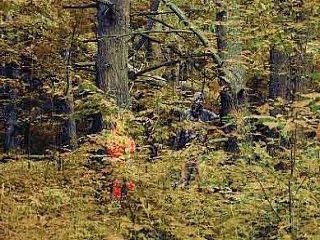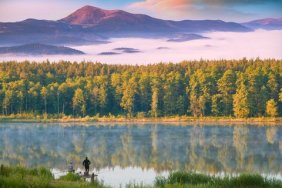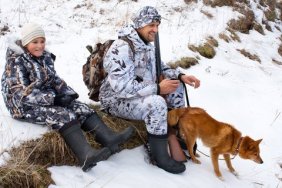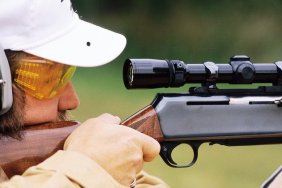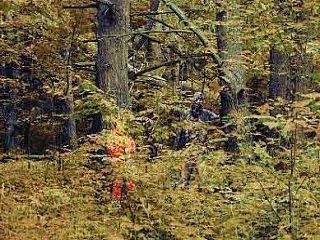 As I mentioned in Part One of “Lessons Learned With a New Hunter,” my young hunter was capable of killing his first deer, but a series of small decisions and scenarios were working against us unbeknownst to me, a hunting guide with almost 40 years of outdoor experience.
As I mentioned in Part One of “Lessons Learned With a New Hunter,” my young hunter was capable of killing his first deer, but a series of small decisions and scenarios were working against us unbeknownst to me, a hunting guide with almost 40 years of outdoor experience.
As we hunted in a great ground blind that was really a shooting house it was so comfortable, I noticed on the first evening of the hunt that our area of hopeful deer killing had a dark backdrop created by brush and trees. This small detail would not affect most seasoned deer hunters, but to a new, first-time deer hunter, it would be the main reason for not succeeding in making a good clean kill shot on an animal.
The weather during this particular hunting year was unbelievably warm. In the South, that might not be a big deal, but this was the Midwest and cold weather has almost always been prevalent during hunting seasons of the past. The unusually warm weather was causing the deer to hole up during the day in their cool cover and the evening was the only time they were showing themselves even though it was during the tail end of the rut. In fact, late evening was the norm and that meant my young hunter was trying to put his dark crosshairs on a dark deer against a dark background. All these elements were lining up against us and there was nothing I thought I could do.
In the end and on the last night of hunting with only five minutes of legal shooting light left during the season, I gave the okay for my young hunter to shoot the vital areas of a young buck that he swore he could see clearly though this rifle scope. It was a mistake and I will never make that mistake again. As I fell back onto my optimistic theory that ‘everything would work out,’ I listened as the short rifle barked into the duskiness of last light. I tried watching though my binoculars, but I did not see a deer fall. Instead, I watched as the young buck jumped and ran into a CRP grass field.
After two hours, I had found not one single droplet or fleck of blood anywhere. I consider myself a good tracker and trailer and there were no tracks to track and no blood to trail. I had failed, but it was not up to me to pick up my young hunter’s spirits and explain to him that failure was going to be felt by him a lot more in his life, but there were upsides.
My ego and pride were hurt, but I quickly began to replay all the events in my mind and I set out to start learning and accept my mistakes. First off, I had put us in a bad setup and did not correct it. Secondly, I had not taken a look myself though the hunter’s riflescope to confirm a clear sight picture was there to be had. Thirdly, I assumed too much and should not have. But mostly, I was a victim to my own optimism and I took for granted that everything would just work out like it always seems to. My young hunter is fine and he is looking forward to next year’s hunting season. However, I will never get over it, but I did learn a lot and I will never make those same mistakes again and I hope anyone reading this won’t either.
